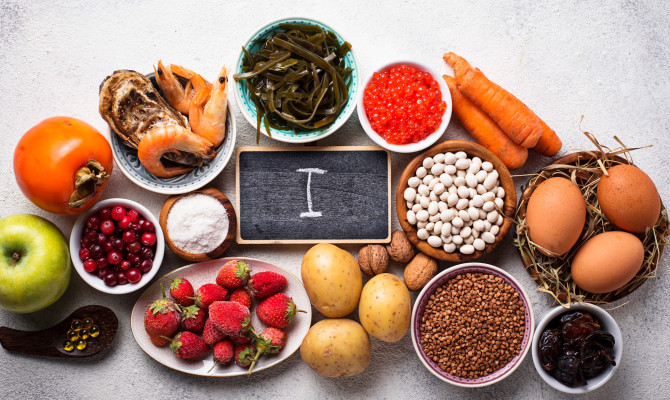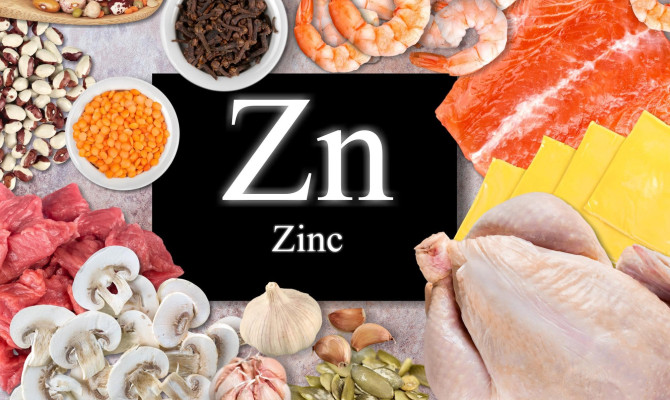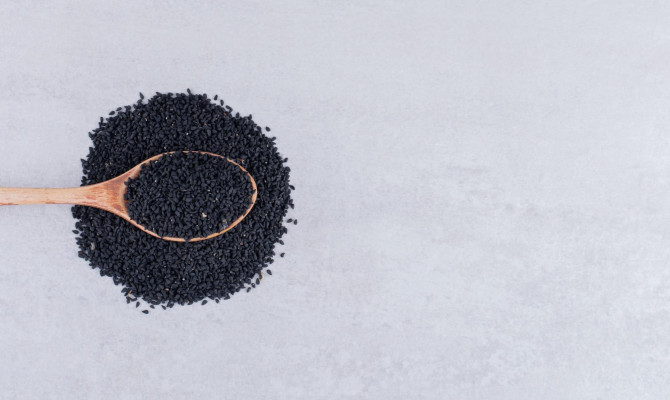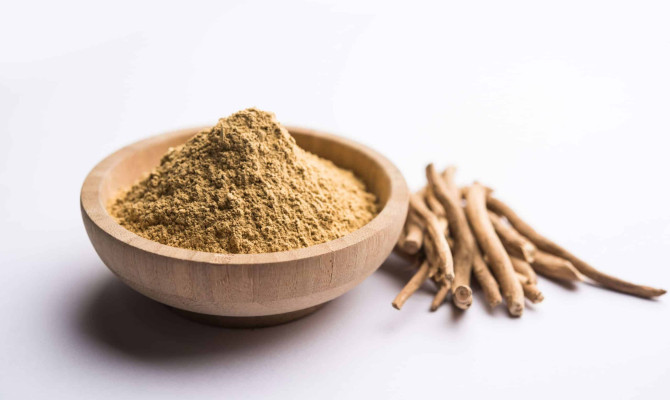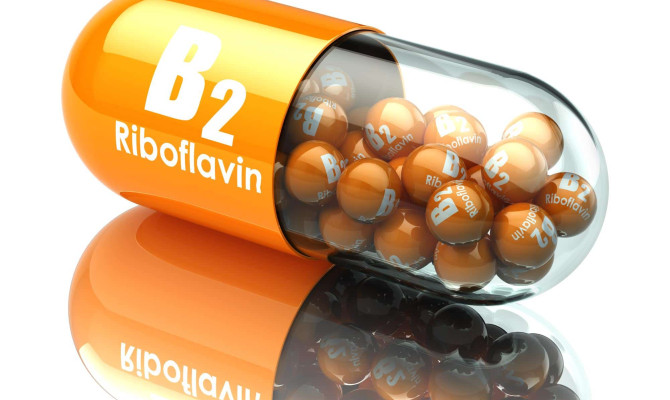Biotin and its role in a healthy life

- Biotin
- 16 Aug 2023
Overview
What is Biotin ?
A water-soluble vitamin called biotin, also referred to as vitamin H or vitamin B7, is necessary for the body to process carbs, lipids, and amino acids properly.1Overview | Researched based study from Nih.gov
Multivitamins, B-vitamin complexes, and standalone supplements all include biotin. Good bacteria of our lumen also produce biotin. It can also be found in trace amounts in a variety of foods. Biotin is also important for normal embryonic growth, making it a critical nutrient during pregnancy.

Facts
Facts about biotin
- The vitamin biotin was first identified in 1931 as promoting good skin and hair in rats.
- Additionally, it has shown anti-inflammatory and antioxidant qualities.
- Biotin is not retained by our body .
- Since biotin was initially obtained from egg yolks, which were known in German as “Haar and Haut,” or “hair and skin,” biotin is sometimes referred to as “Vitamin H.”
- The term “biotin deficiency facies” refers to the rash and oddly distributed face fat in those who are biotin deficient.
Functions

Biological functions
Metabolism of energy
- The metabolism of proteins, carbs, and lipids is necessary. It plays a role in transforming these macronutrients into cellular energy that the body can utilize.
Expression of genes
- Controlling the expression of specific genes necessary for cellular development and division plays a function in gene expression.3Functions | Researched based study from Nlm.nih.gov
The health of the skin, hair, and nails.
- Maintaining good skin, hair, and nails depends on it. Keratin, a protein that makes up these structures, is produced in its support.3Functions | Researched based study from Nlm.nih.gov
Nervous system function
- The normal functioning of the neurological system depends on biotin. It participates in the production of neurotransmitters and myelin, a substance that protects nerve fibers and aids in transmitting nerve impulses.3Functions | Researched based study from Nlm.nih.gov
Immune system function
- It has been shown to have immuno-modulating effects, which means it can aid in controlling the immune response and defending against illness and infection.
Fetal growth
- The development of the nervous system, in particular, depends on biotin during foetal life.3Functions | Researched based study from Nlm.nih.gov
Blood sugar control
- Enhances insulin sensitivity and cell uptake of glucose, which helps to control blood sugar levels.3Functions | Researched based study from Nlm.nih.gov
Health Benefits
Benefits for health
Type 1 Diabetes
- Biotin has been demonstrated to increase insulin sensitivity and glucose uptake in cells, which may help control blood sugar levels in people with type 1 diabetes.4Benefits | Researched based study from Nlm.nih.gov
Reduced inflammation
- It contains anti-inflammatory qualities and could aid in reducing bodily inflammation, which is associated with several chronic disorders.
Enhanced mental capacity
- It might aid in promoting healthy brain function and enhancing cognitive abilities.
Decreased chance of birth abnormalities
- Reduces the chance of birth abnormalities, especially when the neurological systemis developing. 2Health benefits | Researched based study from Nlm.nih.gov
Sources
What are the dietary sources?
Animal-based
- Egg yolks
- Organ meats (such as liver and kidney)
- Dairy products (cheese, yoghurt)
- Meat (beef and chicken)
- Fish and shellfish (mackerel, salmon and oysters).1Sources | Researched based study from Nih.gov
Plant-based
- Nuts and seeds (such as almonds, peanuts, and sunflower seeds)
- Legumes (such as beans, lentils, and soybeans)
- Whole grains (such as wheat germ and whole wheat bread)
- Fruits (such as bananas and raspberries)
- Vegetables (such as sweet potatoes, spinach, and broccoli).1Sources | Researched based study from Nih.gov
Symptoms
Deficiency symptoms of Biotin
- Hair loss: Hair loss, hair thinning and colour loss, is one of the most prevalent symptoms.
- Skin rash: A biotin deficit may result in a scaly, red rash around the mouth, nose, and genital region.
- Brittle nails: This condition may also result in nails that are easily broken or split.
- Fatigue: Because of its involvement in metabolism, it can cause fatigue and weakness.
- Neurological symptoms: A deficiency may result in neurological symptoms like seizures, depression, and tingling in the hands and feet.
- Cramping and muscle soreness are both possible.
- Increased vulnerability to infections due to impaired immune function.5Symptoms | Researched based study from Harvard.edu
Causes
Causes of Biotin deficiency
Poor diet
A diet deficient in foods rich in biotin, such as may cause the deficit.
Prolonged use of few medicines
- Antibiotics The gut flora balance can be upset by antibiotics, which might affect the body’s ability to produce biotin.
- Anti-epileptics and anti-convulsant these drugs inhibit renal reabsorption of biotin and also enhance the rate of biotin catabolism 6Causes | Researched based study from Nlm.nih.gov
Genetic disorders
- The body’s capacity to absorb and utilize biotin can be compromised by a few uncommon diseases, such as biotinidase deficiency.6Causes | Researched based study from Nlm.nih.gov
Breastfeeding and pregnancy
- They have a higher need, and a shortfall could arise if they consume more biotin-rich foods or supplements.
Digestive disorders
- The body’s ability to absorb biotin can be hampered by conditions like Crohn’s disease, celiac disease, and inflammatory bowel disease.
Alcoholism
- Alcohol abuse might affect metabolism and absorption over time.
Smoking
- Smokers may have low biotin levels and necessitate biotin supplement.
Dialysis
- Patients undergoing renal dialysis may have low amounts of biotin and require a biotin supplement.
Eating raw egg whites
- A protein called avidin is found in raw egg whites and attaches to biotin to stop it from being absorbed.5Causes | Researched based study from Harvard.edu
Toxicity
Biotin overdose toxicity
The body eliminates biotin through the urine. As a result, biotin overdose is uncommon and usually not a problem for healthy people. High doses, however, may have some adverse effects, such as:
- Skin breakout
- Skin rash and acne
- Supplements taken in high doses have been shown to interfere with lab testing, especially thyroid and hormone tests, producing inaccurate results.
- Nausea, diarrhea, and cramps are all symptoms of an upset stomach.
- An allergic reaction may result in symptoms like hives, breathing difficulties, and itching.
Dosage
Recommended dosage
According to the National Institutes of Health (NIH), the following RDAs for biotin:
For infants
- 0-6 months: 5 mcg/day
- 7-12 months: 6 mcg/day 1Dosage | Researched based study from Nih.gov
For children
- 1-3 years: 8 mcg/day
- 4-8 years: 12 mcg/day
- 9-13 years: 20 mcg/day
- 14-18 years: 25 mcg/day1Dosage | Researched based study from Nih.gov
For adults who are
- 19 years and older: 30 mcg/ day
For pregnant women
- 35 mcg/day
Breastfeeding women
- 35-40 mcg/day 1
Adults should not exceed the acceptable upper intake level of 1000 mcg per day, and significant dose supplements should only be used under a doctor’s supervision.1Dosage | Researched based study from Nih.gov
Interaction
Interaction with medicines
Anticonvulsants
- Anticonvulsant drugs like phenytoin and carbamazepine may hamper absorption.7Interactions| Researched based study from globinmed.com
Antibiotics
- Tetracycline and sulfa medications, two common antibiotics, can cause interference.8Interactions| Researched based study from Nlm.nih.gov
Acne treatments
- The drug isotretinoin may affect metabolism, which is used to treat severe acne.9Interactions| Researched based study from Nlm.nih.gov
Immunosuppressants
- Medicines that can affect metabolism include cyclosporine.
Any feedback on this article?
 This Articles content was accurate
This Articles content was accurate Very Informative Article
Very Informative Article I have a question or a comment
I have a question or a comment
 This article contains inaccurate content
This article contains inaccurate content This article was not helpful
This article was not helpful I have a question or a comment
I have a question or a comment
We appreciate your helpful feedback!
Checkout our social pages
References
-
National Institutes of Health
Biotin-Fact Sheet for Health Professionals | Overview | Dosage | Sources
-
National Library of Medicine
Biotin | Health Benefits
-
National Library of Medicine
Biotin | Role
-
National Library of Medicine
Survey of the effect of biotin on glycemic control and plasma lipid concentrations in type 1 diabetic patients in kermanshah in iran | Benefits
-
Harvard Chan
Biotin – Vitamin B7 | Deficiency
-
National Library of Medicine
Biotin Deficiency
-
Global Information Hub On Integrated Medicine
How Biotin interacts with Anticonvulsants ?
-
National Library of Medicine
Biotin Analogues with Antibacterial Activity Are Potent Inhibitors of Biotin Protein Ligase | Interactions
-
National Library of Medicine
The effect of isotretinoin on biotinidase activity | Interactions












